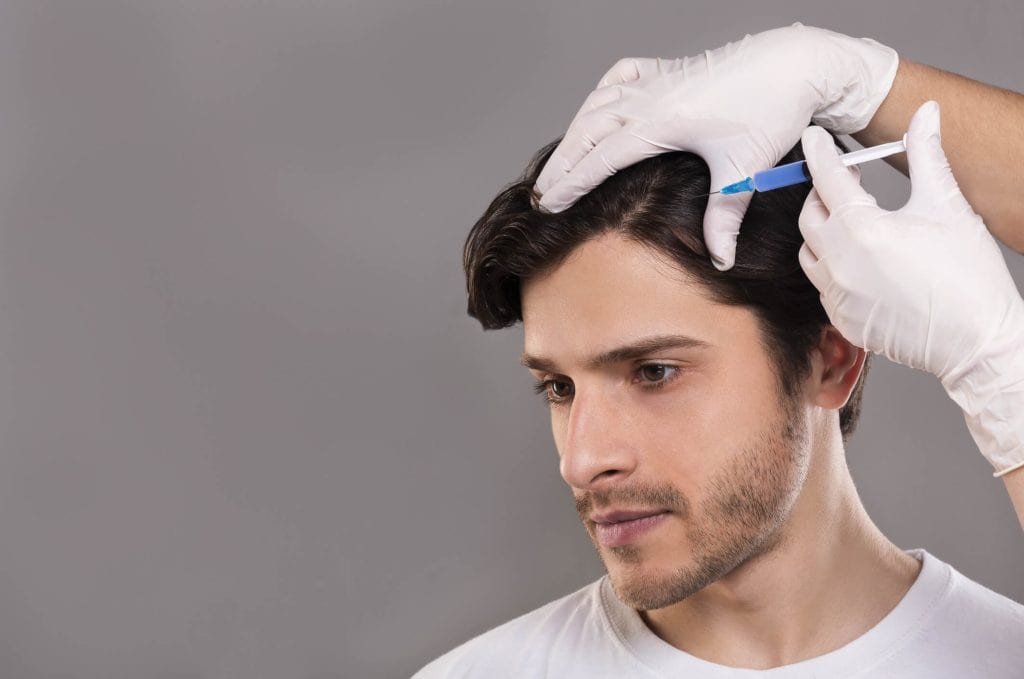Hair loss is a prevalent condition that impacts millions of individuals worldwide. Yet, it continues to be shrouded in falsehoods and misconceptions about its prevention, the role of hormones, the effects of aging, and the action of products like shampoo or gel. These misconceptions often link hair loss to events such as wearing a hat or sun exposure, ignoring the influence of genes, the bloodstream, and the body’s overall condition. As a result, patients may misinterpret signs of thinning density or a receding hairline and pursue ways to restore volume based on unverified claims rather than consulting a doctor or relying on study-backed methods. This can lead to unnecessary anxiety and the use of a lot of ineffective treatments, disregarding the importance of addressing the root causes and considering the different types of hair loss or its connection to broader health factors.
Common Myths about Hair Loss
Hair loss is frequently the subject of prevalent myths, often tied to hormone imbalances, specific haircuts, or the belief that it’s the end of a healthy hair phase. These misconceptions and concerns about other factors like stress or specific forms of care can lead to unnecessary stress or confusion. By confronting these myths, you can better understand the reality of hair health and loss. Let us investigate and dispel some of the most common misconceptions regarding hair loss.
Myth 1: Wearing Hats Causes Hair Loss
The Reality: Hair loss is not a result of wearing hats. Circulation is the source of nutrients and oxygen hair follicles receive rather than external air. Although tight headwear may temporarily flatten your hair, it does not contribute to hair thinning or loss.
Myth 2: Shampooing Too Often Makes Hair Fall Out
The Reality: It is common to observe hair in the drain after a shower; it is a natural occurrence in the hair growth cycle. Individuals shed an average of 50 to 100 hairs per day. Shampooing maintains your scalp’s cleanliness and health, stimulating hair growth rather than impeding it.
Myth 3: Hair Loss Comes Only from the Mother’s Side
The Fact: Although the maternal side of the family is a significant factor in hair loss, the likelihood of hair thinning is influenced by the genetics of both parents. The science behind hereditary hair loss is oversimplified when the sole cause is attributed to your mother’s DNA.
Myth 4: Stress Always Causes Permanent Hair Loss
The Reality: Although stress can induce transient hair loss (telogen effluvium), it usually subsides after alleviating the stressor. Existing conditions, such as androgenetic alopecia, may be exacerbated by chronic or extreme stress; however, hair frequently regrows.
Myth 5: Cutting Hair Makes It Grow Faster
The Reality: Hair develops from the origins, not the tips. Trimming your hair can give it a healthier appearance by eradicating split ends; however, it does not influence the growth rate. Hair grows at an average rate of approximately half an inch per month, irrespective of the frequency of its trimming.
Myth 6: Hair Loss Affects Only Men
The Reality: Although males exhibit more pronounced patterns of baldness, women also experience hair loss and receding hair. Millions of women worldwide are affected by female pattern hair loss (FPHL) and conditions such as alopecia areata.
Myth 7: Hair Products Cause Baldness
The Reality: Hair loss is not a common consequence of most hair products, including cleansers, conditioners, and styling gels. Nevertheless, harsh chemicals or the improper use of hair dyes and relaxers may damage hair follicles, resulting in breakage rather than genuine hair loss.
Myth 8: Baldness is Inevitable with Age
The Reality: Although age contributes, only some achieve baldness. It is not uncommon for hair to thin at one age; however, some individuals maintain a full head of hair for their lifetimes. Hair retention is significantly influenced by genetics, lifestyle, and overall health.
Myth 9: Natural Remedies Are Always Effective for Hair Loss
The Reality: Although remedies such as scalp massages and essential oils can promote scalp health, they rarely address the underlying causes of hair loss. Advanced therapies have produced more consistent outcomes, such as hair transplants, stem cell treatments, and medications (e.g., finasteride or Minoxidil).
Myth 10: Hair Loss Is Always Permanent
The Reality: Not all hair loss is irreversible. Hair regrowth is frequently possible with appropriate treatment or time in conditions such as alopecia areata, an autoimmune disorder, and telogen effluvium, which are caused by stress or illness.
The Role of Hormones in Hair Health
Hormones significantly influence the regulation of numerous physiological functions, such as hair growth, health, and loss. An imbalance in these hormones may result in hair thinning, breakage, or loss. Understanding the impact of hormones on hair can facilitate identifying potential causes of hair issues and exploring appropriate treatments.
The Impact of Hormones on Hair Growth
Hair growth follows a cycle that includes the anagen (growth) phase, the catagen (transition) phase, and the telogen (pause) phase. Hormones directly affect these cycles, either promoting hair growth or contributing to hair loss, contingent upon the body’s equilibrium.
Key Hormones That Influence Hair Health
Dihydrotestosterone (DHT)
- Definition: DHT is a byproduct of testosterone.
- The influence on hair: Androgenetic alopecia (pattern baldness), the most prevalent form of hair loss in men and women, is associated with elevated DHT levels. DHT attaches to hair follicles, resulting in the shortened anagen phase and hair miniaturization and loss.
Testosterone
- What It Is: Testosterone is a male sex hormone that is also present in women, albeit in lesser quantities.
- The influence on hair: DHT can be produced when testosterone levels are elevated, which elevates the likelihood of hair loss. In contrast, the maintenance of healthy hair growth is contingent upon the presence of normal testosterone levels.
Hormone Estrogen
- What It Is: Estrogen is a critical female hormone that regulates reproduction and affects hair growth.
- Hair Effects: Estrogen contributes to the extension of the hair cycle’s anagen phase (growth phase). This explains why numerous women experience denser, fuller hair when estrogen levels are elevated during pregnancy. Hair thinning may result from decreased estrogen levels, such as postpartum or menopause.
Thyroid Hormones (T3 and T4)
- What They Are: These hormones regulate metabolism, energy levels, and physiological functions.
- The influence on hair: Hair loss or thinning may result from an imbalance in thyroid hormones, whether hypothyroidism (low thyroid hormone) or hyperthyroidism (high thyroid hormone). Thyroid imbalances frequently impact the hair growth cycle, which frequently results in an increase in flaking.
Cortisol
- Definition: Cortisol is recognized as the stress hormone.
- The influence on hair: Chronic stress can result in prolonged elevated cortisol levels, which can induce hair follicles to enter the telogen (resting) phase, leading to excessive hair shedding or hair loss.
Hair Health and Hormonal Changes
Hair can be substantially impacted by hormonal fluctuations, which occur naturally throughout life. Common modifications that influence hair health include:
Pregnancy and Postpartum
- Hair remains in the anagen phase due to elevated estrogen levels during pregnancy, which results in thicker hair.
- Telogen effluvium, also known as postpartum hair loss, results from a decrease in estrogen levels following childbirth, which induces hair to transition into the telogen phase.
Menopause
- Estrogen levels decrease during menopause, resulting in the thinning of hair and shortened anagen phases.
- DHT may also influence hair loss during menopause, as hormone levels fluctuate.
Disorders of the Thyroid Gland
Hair loss can result from disrupted hair growth cycles in individuals with hypothyroidism and hyperthyroidism.
- Hypothyroidism: Hair that is thinner and more fragile is a result of a slowed metabolism.
- Hyperthyroidism: Rapid discharge is a consequence of accelerated metabolism.
Hormonal Imbalance and Stress
- The organism releases cortisol in response to stress. Elevated cortisol levels can result in the premature entry of hair into the dormant phase.
- Excessive discharge can be prevented by addressing stress and hormonal changes.
Hormonal Medications and Birth Control
- The condition of hair can be influenced by the alteration of estrogen and progesterone levels caused by oral contraceptives and hormone replacement therapies.
- Temporary hair loss may occasionally result from fluctuations in these hormone levels.
How to Maintain Healthy Hair by Balancing Hormones
Achieving hormonal equilibrium is essential for the preservation of healthy hair. The following are a few strategies:
Reduce Stress
- Stress significantly influences cortisol production, which has a detrimental effect on hair health.
- Incorporate stress management strategies, including therapy, meditation, yoga, or exercise.
Enhance Thyroid Health
- Consistently assess thyroid levels and seek the advice of a healthcare provider to address any imbalances.
Adopt a Balanced Diet
- Iron, zinc, vitamin D, and biotin are essential nutrients that help regulate hormones and maintain healthy hair.
- Incorporate leafy greens, proteins, and nutritious fats into your diet.
Medications or Supplements
- If a hormonal imbalance is detected, your healthcare provider may suggest medication or supplements to regulate hormones.
Seek Advice from an Expert
- Consultation with an endocrinologist, dermatologist, or hair specialist can offer targeted treatment options for hormonal hair loss, a complex condition.
The Dispelling of Myths Facilitates Improved Hair Care
Comprehending the reality of hair loss involves understanding the role of factors like hormones, dihydrotestosterone (DHT), and testosterone in the health of hair follicles and the amount of credible information available on the topic. This knowledge can reduce anxiety and promote more effective hair care practices. People experiencing hair thinning, whether due to patterned baldness or other reasons, should remember that consulting a dermatologist or healthcare professional is the best way to receive personalized guidance for their specific case.
Effective solutions can address the root causes of hair loss with treatments such as hair transplants, medications, and innovative therapies like stem cell treatments. Empower yourself by creating a list of proven options and refraining from allowing false information to shape your approach to managing hair loss.
Ready to take action? Contact us today for expert advice and discover tailored treatments for your skin type and hair care needs.
Frequently Asked Questions
Hair micronutrients have the potential to prevent hair loss.
Hair vitamins are beneficial when a deficiency causes hair loss; however, they are ineffective in treating genetic or hormonal causes.
Is hair transplant surgery capable of producing lasting results?
Indeed, hair transplants frequently yield enduring outcomes when executed by a competent professional.
Is it advisable to consume hair growth supplements?
It is generally safe to use hair growth supplements; however, it is essential to consult with a professional to prevent any potential adverse effects.
Is it possible to prevent hair loss through a nutritious diet?
A well-balanced diet bolsters hair health; genetic or hormonal hair loss cannot be entirely prevented.
Do over-the-counter hair-fortifying shampoos remedy hair loss?
No, these products can enhance the appearance of receding hair; however, they do not address the underlying causes.
Is laser therapy effective for hair loss?
Low-level laser therapy has demonstrated the potential for fostering hair growth in specific individuals.
Is scallion juice an effective home remedy for hair loss?
Although some home remedies have anecdotal benefits, they have yet to be scientifically proven to regrow hair.
Is it possible for scalp massage to stimulate hair growth?
Scalp massage may enhance blood circulation, contributing to hair health; however, it is not a cure for hair loss.
Is it possible to reverse hair loss with the appropriate treatment?
Indeed, treatments such as Minoxidil, finasteride, and hair transplants can effectively address specific forms of hair loss.
Is hair loss a consequence of donning hair extensions?
Traction alopecia may result from the prolonged use of hair extensions that exert excessive tension on the hair.
Understanding Hair Loss Myths and Facts
Hair loss is a subject that is frequently misunderstood, and it is frequently masked by myths that can result in unnecessary anxiety or ineffectual treatments. A prevalent misconception is that hair loss is exclusively inherited from the mother’s side of the family. However, both parents’ genetics are involved. Likewise, the assertions that “wearing hats causes baldness” or “frequent shampooing leads to shedding” are unfounded. Factors such as genetics, hormonal changes, and medical conditions, rather than routine hair care practices or accessories, are the primary factors that influence hair loss. It is common for individuals to lose 50–100 hairs per day as part of the natural hair cycle. Therefore, hair in your brush or drain is not inherently a cause for concern.
At Neograft Hair Restoration Orange County, we are dedicated to debunking these misconceptions and offering science-based, efficient solutions. We provide customized treatments designed to address your hair loss, regardless of whether it results from genetic factors, hormonal imbalances, or stress. Advanced restoration techniques and products such as Minoxidil are among the options we offer. Please schedule a consultation with us today to gain clarity and take the first step toward healthier, fuller hair. Don’t let misinformation hold you back.















Recent Comments